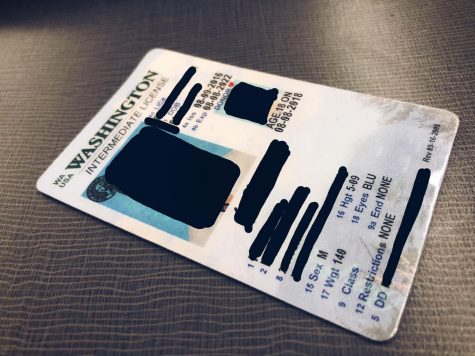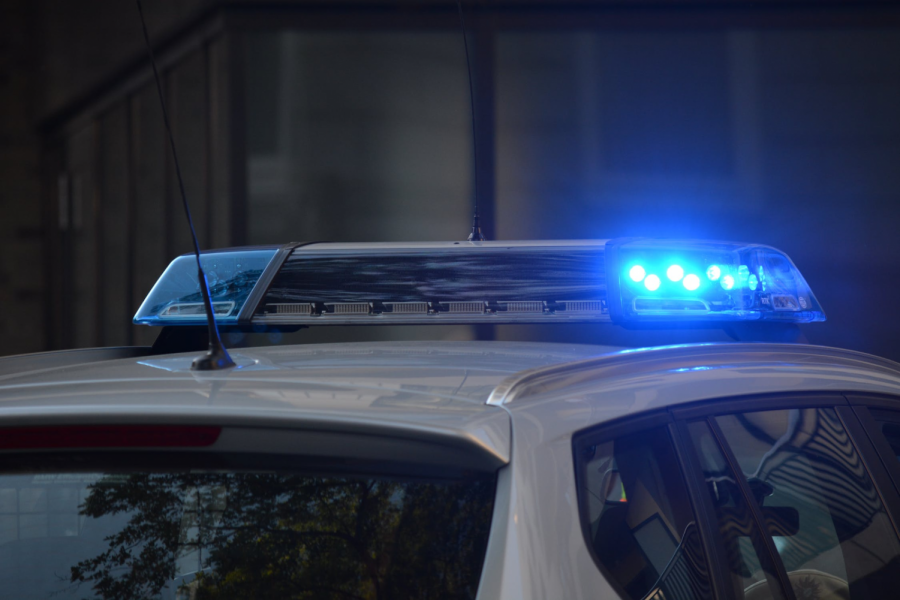Fast Repercussions
The repercussions for tickets come fast, but are they too fast for teens?
June 5, 2018
Students receiving tickets is definitely not a new issue. High School aged drivers are consistently on the tops of the charts when it comes to getting tickets, and will continue to be until the day that self-driving cars take over. From texting a friend at a stoplight to racing friends down the highway, students pick up a bulk of their tickets on things that they’re doing intentionally, not from trivial things such as being unaware of what the speed limit is.
Speeding and Cell-Phone use are two of the most commonly ticketed actions among all drivers, let alone students. In Seattle in 2016, 6,355 Speeding Citations were issued, compared to 1,020 citations regarding cell-phone use according to the Seattle Times. This is an extreme decrease from the previous year, with 9,922 and 2,215 respectively. With “drivers aged 16-25 receiving over one third of all speeding tickets” according to Road and Track, the stats are still not looking good for teen drivers. Another statistic mentioned by Road and Track is that in the same research study “of the 224,915 speeding tickets issued during the time in question, only 37 were for doing less than 5 over”. The higher the speed on the ticket, the higher the fine can be, and extreme speeding can sometimes lead straight to license revocation. Since these 5-mph-over tickets are so uncommon, there is not much room for warning or error once a driver creeps up above that mark.
Now that the causes and types of citations have been addressed, it’s time to look at how these citations are handled.

Anyone with a Teen Restricted (Intermediate) Driver’s License in Washington can receive any citations of those with a full License, however teen license revocations occur easily for those who are shooting for a high score on tickets. The Washington State Department of Licensing states that Intermediate Licenses are typically suspended for “receiving a second or third violation of Rules of the Road (RCW 46.61) or intermediate license restrictions.” This RCW (Revised Code of Washington) details the majority of all laws in which Washington drivers are required to abide by.
After receiving a ticket, there are multiple options available to teens in how they proceed with it. The first of these options, is simply paying the ticket fine, after which the ticket will go onto the teen’s driving record, and the insurance company will be notified, causing rates to increase dramatically.
The second of these options is to defer the ticket. Deferring a ticket allows the judgement of the ticket to be pushed back. (Up to a year in Washington) If the driver does not get cited for another violation within this time, the ticket will be dropped completely. This means the driver will not pay the fine, and the violation will not be reported to the insurance agency. The only cost the driver may incur with this method is a fee the court will charge. Drivers can defer one moving violation, and one non-moving violation every seven years in Washington.
The final option is for a hearing regarding the violation. There are two types of hearings, a mitigation hearing, and a contested hearing. A mitigation hearing involves admitting to the crime, and is only used to ask the judge to lower the fees of the ticket, or to give some sort of alternative to paying the fine. A contested hearing however, is where the driver may argue that they are not guilty, and the prosecution is forced to prove that they did in fact commit the violation.
The circumstances of the ticket that a student receives will determine the best way that they can go about dealing with it. Some other areas have created other options for their students, such as Issaquah’s Student Traffic Court. In this court, students are judged by a court of fellow students, and they rule to explore the context of the tickets issued, and to find alternatives to leaving a high school student with a hefty fine and astronomical insurance rates. According to an article on this published by the Seattle Times “Some teens in the Puget Sound region can arrange for traffic tickets to be diverted to student-run court and those infractions removed from their driving record” While Tahoma students do not currently have this option available to them as it is only available to students of Issaquah’s high schools, it may be something worth looking into for the future Tahoma students.
Students dealing with the aftermath of a ticket have many choices to make with how they deal with it, but the larger choices to be made still lie with the state on any additional options that should be made available to young drivers. As previously mentioned, drivers aged 16-25 receive over one third of the citations that are issued each year. If alternative options like the aforementioned Issaquah Student Traffic Court were made available to more young drivers, that ‘one third’ statistic would likely see a heavy decrease.
Part of the problem that with the current system is that if a teen driver is forced to pay a ticket, i.e. cannot get it dismissed or reduced to a non-moving violation, they are immediately faced with an upfront cost as well as a continued cost of raised insurance. There are some insurance companies that do no raise your rates with your very first citation that is reported to them, but for the most part rate increases can be seen immediately after the first citation is added to the driving record. This does not leave much room for warning or learning from mistakes before stacking on the consequences. If someone who is still developing their driving skills is met with heightened costs after their very first ticket, that does not help them to learn, and could even prevent them from being able to hold an active insurance policy if they cannot afford the additional cost.
The point of tickets is to hold people accountable and hopefully increase safety in the long run, however in the aforementioned scenario, having new drivers that cannot afford to have insurance is definitely going to decrease overall public safety on the road.



